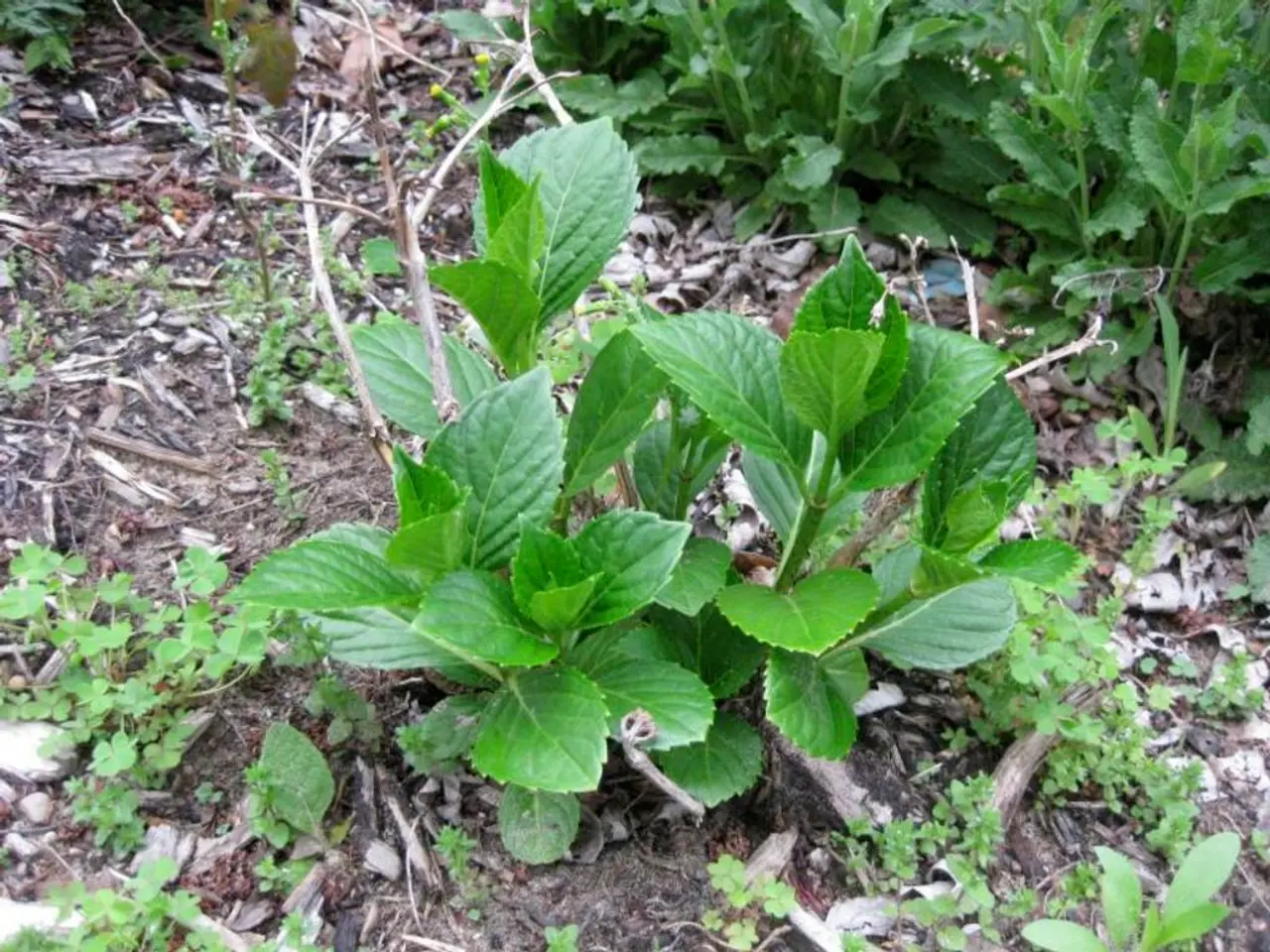Strategies to Deter Pests from Devouring Your Herbs: Explore Three Proven, Organic Approaches to Safeguard Your Herb Garden
In an effort to maintain a thriving herb garden, gardeners can employ several effective strategies that focus on attracting natural predators and using organic deterrents. By fostering a balanced ecosystem, pest populations can be kept under control, and the use of harsh chemicals can be minimised.
**1. Attract Natural Predators**
One of the most natural ways to control pests in a garden is by attracting beneficial insects. Flowers such as marigold, yarrow, cosmos, and sweet alyssum are excellent at luring natural predators like ladybirds (ladybugs) and lacewings, which feed on aphids and other pests harming herbs. Insect hotels or houses can also provide shelter to beneficial insects, encouraging them to stay in your garden and control pest populations naturally.
A garden pond can attract frogs and toads, which prey on slugs, caterpillars, and spiders. Encouraging birds and bats by installing birdhouses, bird feeders, or bat boxes near your herb garden can also introduce predators that consume pest insects. Planting a diversity of native plants not only supports a balanced ecosystem but also sustains populations of predatory insects and birds, naturally reducing pest outbreaks.
**2. Use Organic Deterrents**
Planting pest-repellent herbs and aromatic plants like garlic, mint (preferably in containers due to its invasiveness), and bay leaves can help deter certain pests such as weevils. Employing trap crops like calendula (pot marigold) can attract pests—aphids, for example—away from your herbs. These trap crops act as decoys, drawing pests while also attracting their natural predators, creating a beneficial predator-prey balance.
Crushed eggshells or diatomaceous earth can deter crawling pests when placed around the base of herb plants. Maintaining garden hygiene by removing fallen fruits, leaves, and decaying matter can reduce pest habitats and breeding grounds. Keeping mulch layers thin can also avoid shelter for pests like weevils. For smaller infestations, especially nocturnal ones like weevils, manual removal can be effective without chemicals.
**Summary**
By combining these approaches, gardeners can foster a sustainable garden environment where natural enemies keep pest populations under control, and pests are deterred organically, ensuring healthy and thriving herbs without the use of harsh chemicals. For example, a 20mm x 25m roll of copper tape, available on Amazon for £6.99, can be used as a chemical-free solution to deter slugs from potted herbs. Experts like Richard Barker suggest companion planting as a method to reduce pest activity.
Homemade garlic spray, made from garlic and water, can be applied every two weeks, like neem oil. The DD Organic Neem Oil Spray is effective against aphids, whiteflies, mealybugs, and scale insects. Marigolds, yarrow, and cosmos are plants that attract ladybirds and can help control pests. Garlic contains sulphur compounds and has an active compound called Allicin that repels insects. Neem oil spray can help control certain flies without harming beneficial insects.
Katie Sims, a freelance writer specialising in homes and gardens, emphasises the importance of these sustainable practices. With her expertise, gardeners can learn effective methods to maintain a healthy and vibrant herb garden.
In the realm of home-and-garden and gardening, employing a lifestyle that nurtures a balanced ecosystem can work wonders for maintaining a thriving herb garden. Attracting beneficial insects such as ladybirds and lacewings by planting flowers like marigold, yarrow, cosmos, and sweet alyssum can aid in controlling pests naturally (lifestyle).
Furthermore, using organic deterrents such as pest-repellent herbs like garlic and employing trap crops like calendula can help maintain a pest-free herb garden. These methods promote a chemical-free environment, ensuring healthy and thriving herbs (home-and-garden, gardening).




